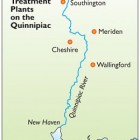‘Red Flag’ Law Is A Start, But Not Enough To Curb Gun Violence
|
You can have prayers. Or you can have teeth. After two mass shootings within 16 hours stunned the nation earlier this month, conversation turned to how best to remove guns from the wrong hands. Seventeen states—including Connecticut—and the District of Columbia have “red flag” laws, also known as “extreme risk” laws, that, depending on the state, allow family members, household members, or law enforcement officials to petition the courts to remove guns from the hands of someone who might do harm to himself or herself, or to others. It’s an approach that is supported by 85% of registered voters, according to a 2018 Washington Post/ABC poll.



